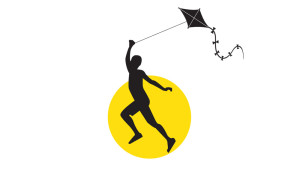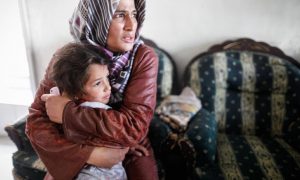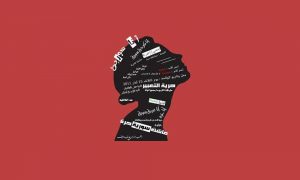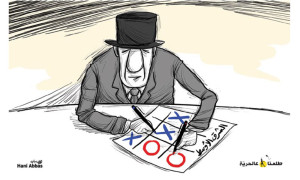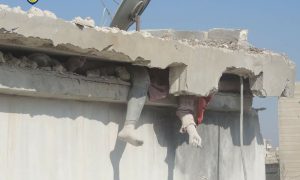By Bushra Al-Bashawat.
I really wish to hug him, but I have not done much of that since the siege.
The male culture is ever re-inventing the trap that was long set up for us and we fell into. All we have to do is fall into it properly.
The relationship between man and woman as a social phenomenon is represented through institutions and social, cultural, and religious structures that embody the predominance of the man. This sense of victorious predominance is attributable to the illusion of supremacy and that the fictitious fight for it has been decisively won.
During a movie by Swedish director Ingmar Bergman, the actors confess to a multitude of sins: the sin of coming into this world, the sin of a child growing in a woman’s body, and lastly the sin of this woman perhaps dying before finding love. During a siege, however, a woman is kept simultaneously distressed and anxious. She must find her escape from the storm known as “war” which tore through all that flesh and left all those women constantly hemorrhaging.
The siege of Ghouta is entering its fourth year. No report, program, or investigation on it was successful in delivering the true humanitarian scale of the suffering of women. The aware, motivated, and active man who bounces here, fights there and refuses to concede, is the same man who forgot how to embrace his beloved. The man who cries on his mother’s shoulder and hugs his sister is unable to shower his beloved or his wife with affection even through a glance. At the core of the relationship, things become different. As Freud once pointed out, the psyche of a human being is composed of three layers: conscience, preconscience, and unconscience. When the science goes into the unsconscience, it reveals evidence that the deepest corners of a man’s psyche are doused with restriction and a complex-like attitude in dealing with his beloved woman. The woman who grew him in her womb has become a symbol of death in the deepest parts of his soul. He would die for her but would not embrace her, while she tries to find herself amongst other women crowding this besieged home: a mother, sisters, and sisters-in-law.
We tend to prefer pain even as we fight evil. Humans tend to act foolishly like we do when driven by what we call higher motives. All this destruction cannot be haphazard. It is systematic and is meant to kill women specifically. All narratives, therefore, that aim to diminish the misery, poverty, rejection, and all kinds of exclusion practised against women ring hollow.
Women live under siege and outside of it. They live their lives with a severe case of “exile” in a world that, more and more everyday, turns out to be their big prison. In this world, women have become commodities to man, in a civilization that is meant to be his, and are considered some of the most precious and most beautiful of items, thereby making women creatures who are doubly shunned: first in the world of man, and second when they feel shunned and long for freedom. They view themselves and the world in the eye of man, through his concepts and expectations as though borrowing his mirror to view themselves, only to see a ghost they assume is a woman.
Man may die once in a war that he started and he can end, while a woman’s death is multiplied as she did not start the war, nor can she end it. Yet she weeps over a husband, a brother, a son, a relative, or a beloved. In a world that knows no siege, a mother will not send her children to war, and the once besieged woman will say “I shall not search for you anymore, because you are now here, here.”
Translated by Dima Alghazzy

A Syrian semi monthly, independent, political, cultural, social, and economic magazine










